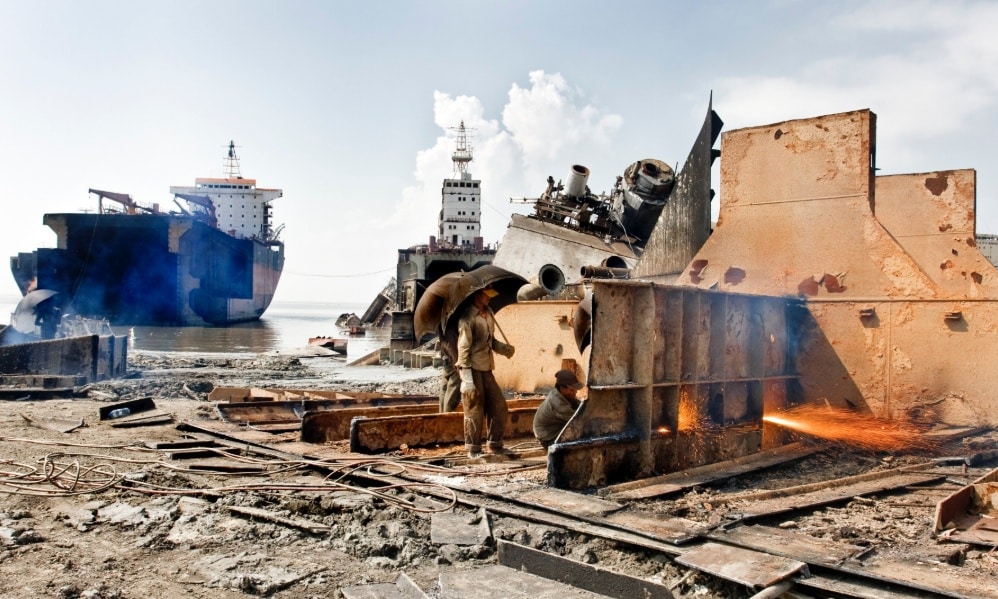Breaking bad: shadow ships head for India’s beaches
Shipbreakers Turn to Sanctioned Vessels Amid Market Decline

Shipbreaking activity has plummeted to its lowest levels in a decade, prompting some shipbreakers to resort to scrapping sanctioned vessels. According to Clarksons Research, this trend is creating downward pressure on pricing as these vessels, often acquired at steep discounts, are dismantled discreetly in India. The influx of these low-cost ships is disrupting market dynamics and affecting overall sentiment in the industry.
Sanctioned Vessels Impacting Shipbreaking Market
The shipbreaking industry is facing unprecedented challenges as demolition volumes reach a decade low. In response, some shipbreakers are increasingly accepting sanctioned vessels, which are often sold at significantly reduced prices due to their questionable legal and operational status. Clarksons Research highlights that these vessels are being scrapped “under the radar,” contributing to a shift in market dynamics. The rise in sanctioned tankers being dismantled in India is particularly concerning, as it is exerting pressure on pricing and dampening market sentiment.
Sanctioned vessels typically come with extended payment terms and measures to obscure the owner’s identity, complicating the transaction process. This situation has led to a unique set of challenges for shipbreakers. BRS Shipbrokers recently noted that it remains difficult for tankers to exit the shadow fleet unless they are sold to another operator within that same fleet. The primary hurdle is that most cash buyers and recycling yards conduct transactions in US dollars, which poses a risk of exclusion from the US banking system if the government decides to take action against such dealings.
Market Dynamics and Future Implications
The current influx of sanctioned vessels is not only affecting pricing but also altering the overall landscape of the shipbreaking market. As more of these vessels enter the scrapping process, the competition among shipbreakers intensifies, leading to further price reductions. This situation raises concerns about the long-term viability of the industry, as the presence of low-cost tonnage can undermine established players who operate within legal frameworks.
The implications of this trend extend beyond immediate pricing pressures. The potential for increased scrutiny from regulatory bodies could lead to stricter enforcement of sanctions and regulations surrounding shipbreaking. As the market adapts to these changes, shipbreakers may need to reconsider their strategies and operational practices to navigate the complexities introduced by sanctioned vessels. The future of the shipbreaking industry hinges on how effectively stakeholders can respond to these evolving challenges while maintaining compliance with international regulations.
